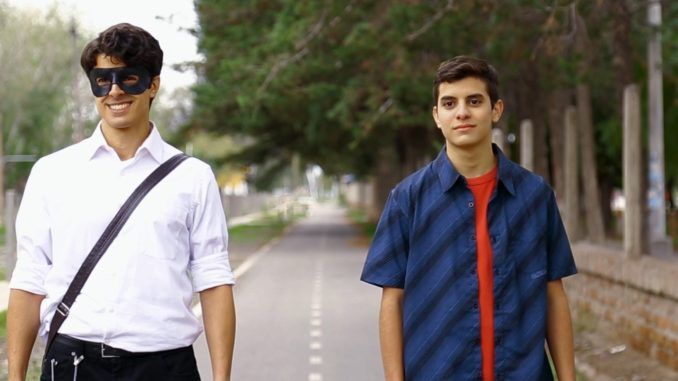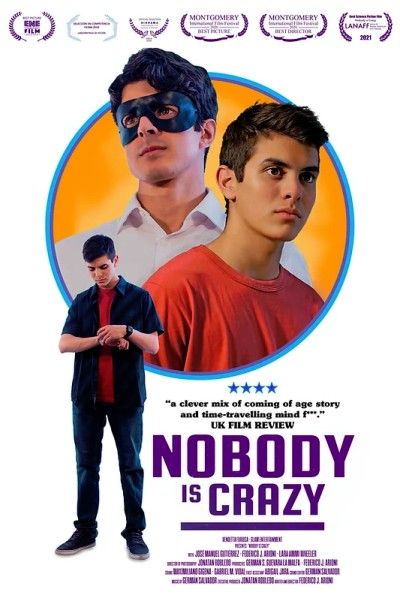
Rating: B-
Dir: Federico J. Arioni
Star: Manuel Gutierrez, Federico J. Arioni, Lara Ammi Wheeler, Paula Arioni
a.k.a. Nadie está loco
This film probably breaks two normal rules of movie-making, the first being, “Show, don’t tell.” For this is strikingly chatty. People talk while sitting. People talk while standing. People talk while they’re walking. People in this film really like the sound of their own voices. This applies in particular to Rafael (Gutierrez), the teenage lead, whose inner monologue is persistently expressed in frequent, lengthy voice-overs. That’s the second rule which Arioni cheerfully ignores. Yet despite – or arguably, because of – these, the film still manages to engage, in what’s loosely a time-travel story, yet is more a philosophical discussion on the nature of sanity, with the film’s position made clear by its title.
Rafael has OCD, and is generally antisocial, a situation stemming from his difficult upbringing: adoption, followed by his foster parents splitting up. His mother (P. Arioni) is at her wits’ end, with Rafael resisting therapy, and a self-help group is his last shot before military school. Outside after his first session, he meets a masked, gloved stranger (F.J. Arioni), who calls himself Nadie (Nobody), and claims to be a time-traveller. At first, Rafael is sceptical, having heard of an escapee from a nearby psychiatric facility who matches Nadie’s description. However, for a loony, Nadie is very assured, and a lot of his discussions with Rafael make a great deal of sense to the teenager. Might Nadie possibly be what he claims – and what of rollergirl Daria (Wheeler)?
 It’s certainly different to most other films which use time-travel. Most of those are about changing what will or will not happen. Here, Nadie is firm, repeatedly saying, “Everything that’s happening has already happened and will happen.” The timeline is fixed, and cannot be changed, which does leave me to wonder, what’s the point in time-travel, if you’re no more than a spectator? There are similarities to Leon muss sterben, a similarly chatty time-travel film, more interested in philosophy than giant fireballs. Like that, it’s the heartfelt sincerity at the core which won me over and allowed me to forgive some of the clunky elements. For instance, Gutierrez’s performance occasionally feels stilted, even allowing for his character.
It’s certainly different to most other films which use time-travel. Most of those are about changing what will or will not happen. Here, Nadie is firm, repeatedly saying, “Everything that’s happening has already happened and will happen.” The timeline is fixed, and cannot be changed, which does leave me to wonder, what’s the point in time-travel, if you’re no more than a spectator? There are similarities to Leon muss sterben, a similarly chatty time-travel film, more interested in philosophy than giant fireballs. Like that, it’s the heartfelt sincerity at the core which won me over and allowed me to forgive some of the clunky elements. For instance, Gutierrez’s performance occasionally feels stilted, even allowing for his character.
There’s a revelation about Nadie in the middle that upends things, and I do wonder if the script quite played by its own rules thereafter. But it still does succeed in being a thought-provoking (albeit low-key, to the occasional point of approaching somnambulism) meditation on whether we, as a society, is too quick to treat people whose identities and personalities may simply be different. People we used to call eccentrics, are now diagnosed with ailments by the psycho-pharma complex, from autism to Asperger’s, and medicated, therapied or even surgically reworked, in order to make them feel “normal”. Perhaps simply saying, “You’re okay. Deal with it,” might be a better solution than calling all these people sick? Well, until we can crack the secret of time-travel, at least.
